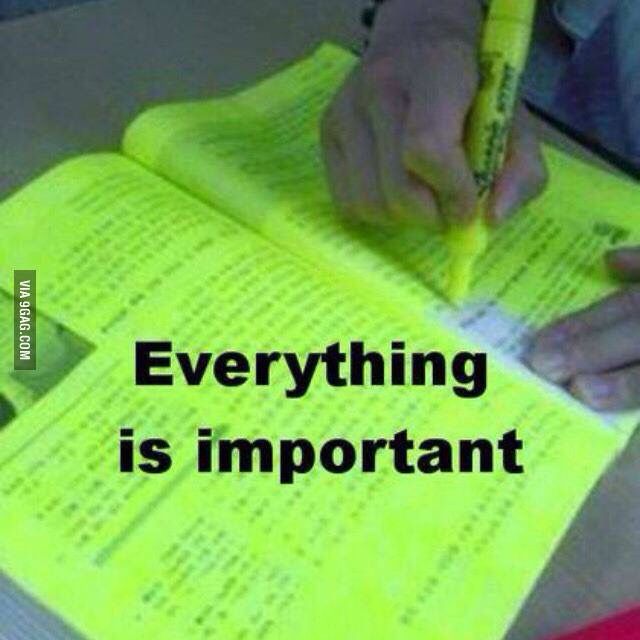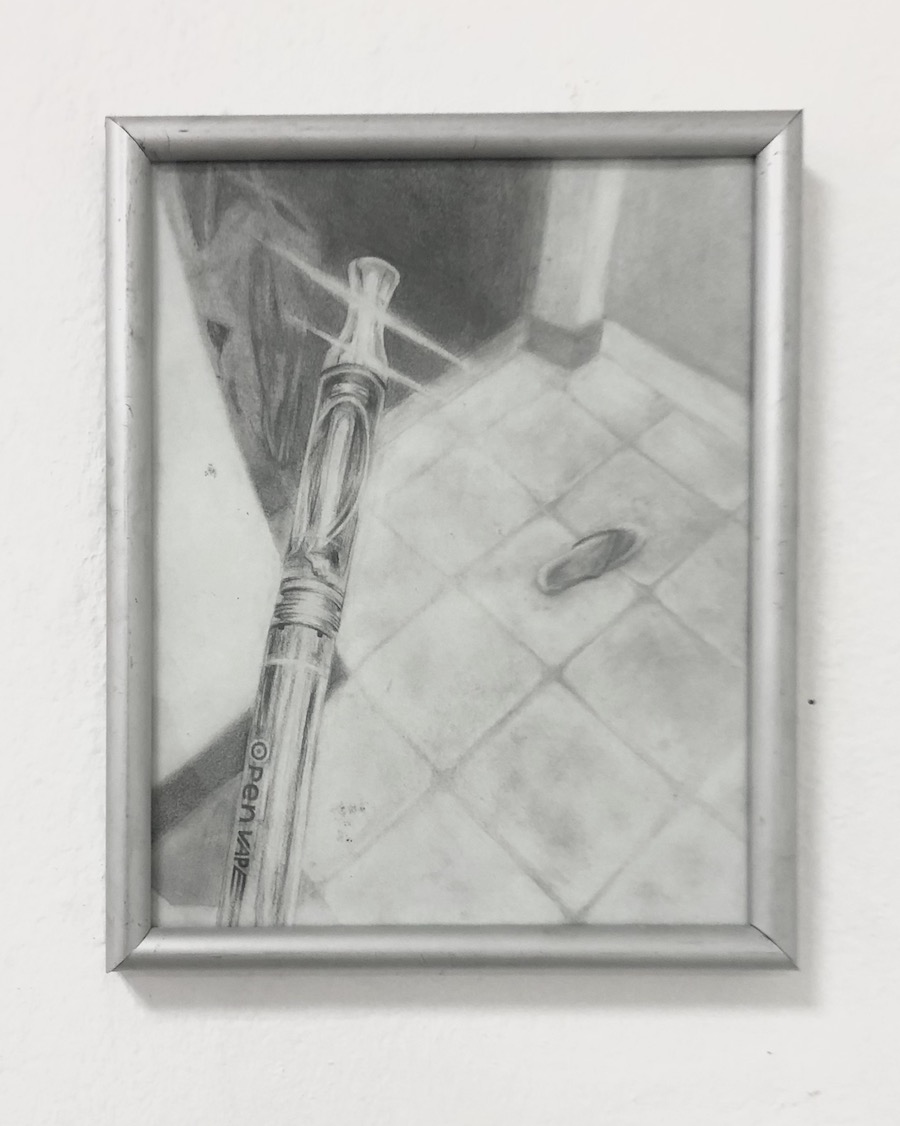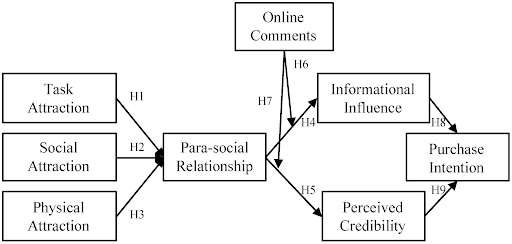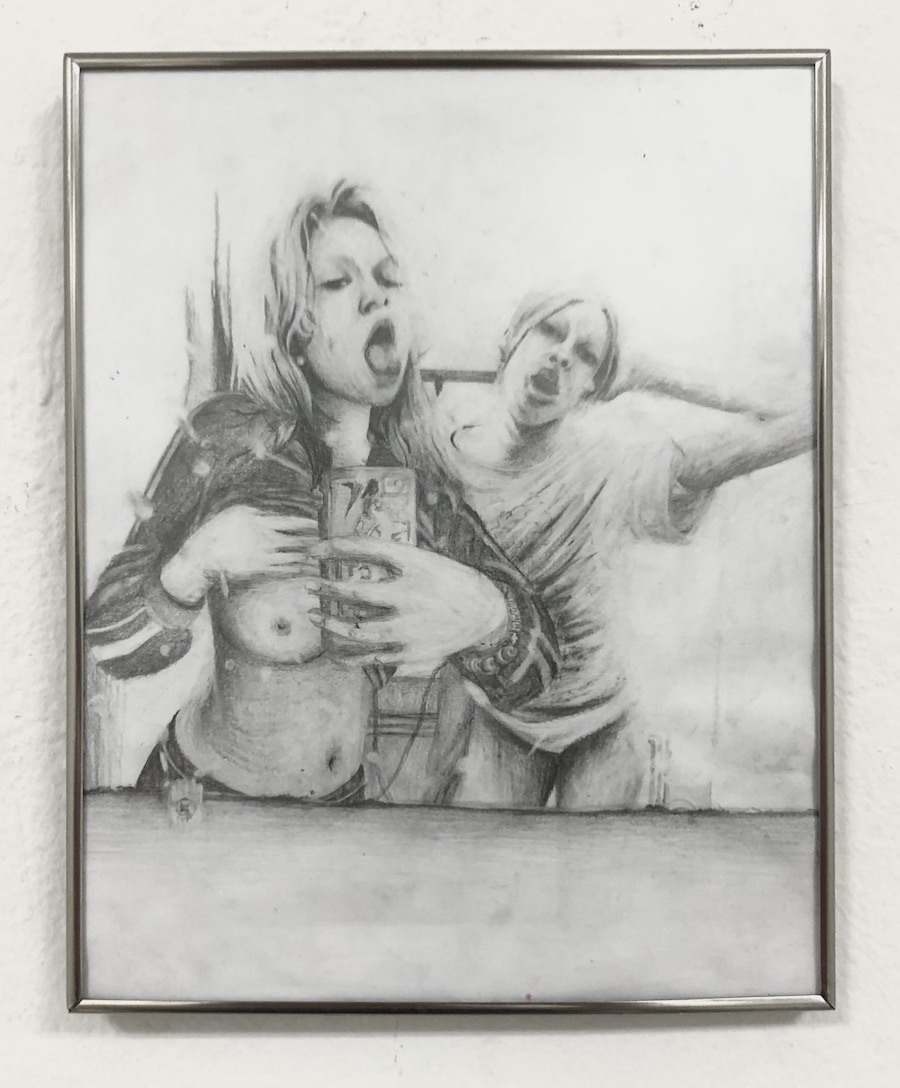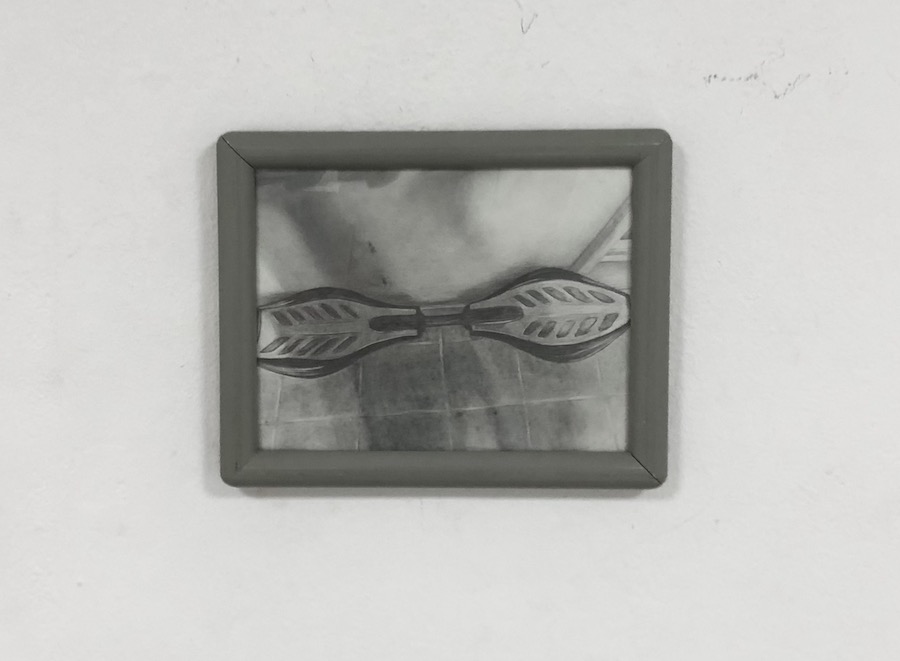People need to do less things and maybe have less goals or something, like in Europe (or at least how Europe is in my head). There is too much information to know where to start, so most never do. Most have never tried to remember anything ever. I haven’t.
It’s something we put off because we can. We think of brains more like sponges, in the sense of you take in what you need while you need it, and then squeeze it all out the second it’s no longer useful. Its, “‘cognitive offloading’, or the tendency to rely on things like the Internet as an aide-mémoire… We might think that memory is something that happens in the head but increasingly it is becoming something that happens with the help of agents outside the head.” Why truly commit something to memory that you can put in an unlabeled notes app or reabsorb with a GPT prompt? And often, because we know this, we only hypothetically learn it to begin with. Bookmarking pages to come back too, and saving videos for later. In a 2016 study through the American Psychology Association, researchers found that, “30% of participants who previously consulted the Internet failed to even attempt to answer questions from memory” (Luria, R., & Meiran, N. (2019)). And even if you were to learn and remember something…what?
We break things down to the point where they are unrecognizable, even to themselves, and that is why the world is ending. We suffocate in microplastic images and our bodies crumble under the weight of access to it all.
In 2014 it was estimated that the average American adult was exposed to between 4,000 to 10,000 advertisements each day (USC Annenberg School for Communication and Journalism). The quality of what we take in online is rapidly declining with the prioritization of monetization, and the sort of click-bait, review culture that’s manifested in recent years. You will never find the original video, only one of a not-fully-house-broken Twitch streamer or somebody’s reluctant grandma reacting to it. It’s a new type of poor image, one that could not even be defended by Hito Styerl in her infamous essay, because in 2009 it did not yet exist. But even in the 80’s and 90’s, “the development and deployment of new information and communication technologies, such as the Internet, intranets, and extranets, but especially e-mail, [were] universally seen as one major cause of information overload. (Bawden, 2001)” (Eppler, M. J., & Mengis, J. (2004)). We know things are moving in a bad direction, but who are we to stop it? We know most of what we see online is fake, but it touches elbows with everything else; and with no guide, it’s our job to sift through it all and make it make sense. We check our Hinge likes while getting the update on the synthetic opium crisis that’s killing our friend group.
In a physical world that is so vilely pleasant and embarrassingly layabout-ish we have developed this ability to project ourselves onto avatars as almost a survival tactic. It’s easier and more processable if the place where your consciousness resides is not necessarily visualized as in our non-customizable human bodies. So what happens when you feel more accepted by your online community then your offline one? When the people you are closest to have only seen a digital rendition of you? In 2019 I watched someone get baptized in an online chatroom. In real time, I saw someone be saved and accept Christ into their sexy anime heart.
It’s the start of a slow moving and voluntary uploading of consciousness. Every moment is cataloged (not remembered), every number saved (forgotten), every passing thought; voiced, critiqued, remixed. We have a receipt of who we are so we don’t have to know. On our social media, we chisel away and build upon these squiggly mirrored reflections of who we think we are, or at least who we hope people think us to be.
But this breathes space for these ‘truer than truths’, hyper realities. There is a version of ourselves out there that only exists online. But it is real and it does exist.
At 13, Tumblr’s algorithm gave me an IRL eating disorder, but it’s also where I (virtually) met Francesca (not linking in person @ my 21st birthday) who is now real life producing my undergrad thesis film, and proofreading this essay. But most people never meet up. Often the digital version is the only version people know. And is that not what the truth is…? What the majority of people collectively believe? We are cornered into hyperboles of ourselves that keep getting algorithmically re-enforced. We get targeted ads that tell us where we are lacking, and we know that there was something ( ( . Y . ) ) the instagram gods liked more about that one selfie over the rest. And now we must recreate that. Feeling the need to live up to the thing we conjured, watching ourselves be surpassed by our own bastardization. We become abstractions of what we once were.
We are infatuated with the idea of a version of self—an avatar—It’s why people obsess over things like ‘glow ups’ and the celebrity. It’s this thing we have convinced ourselves is obtainable with thorough study and analysis. These one way connections burrow so deep and can feel so immersive and intimate that they end up supplementing what would otherwise be face-to-face connections.
“I just really think Kylie should not have a 3rd”
Kylie? What is she, your bridesmaid? Who are you to be giving her paternal advice? Like, don’t get me wrong I knew exactly who you were talking about, and I agree, but do you really feel y’all are on a first name basis? These parasocial dynamics have only become increasingly normalized and delusional. The line between ‘reply guy’ and true friends is blurred to non-existence. And what makes it even harder is everybody is a ‘reply guy’ to somebody, and everybody has at least one ‘reply-guy’. Everybody has gone viral. And everybody is a pop star. The celebrity intermingles with the influencer who intermingles with you. It’s like a trickle up effect of attention.
This feels particularly pertinent for artists. This generation of creators is almost more interested in the self-curation and the individual rather than the creations they produce. Where are you from? What’s your trauma? Are you a nepo baby? (if so, we’ll find out). We are attracted to the pain they felt over technical skill. That the album was recorded in a basement. That the dresses really do have his own hair sewn into them. How we can only value the imagery the painter used to depict his mothers suicide, because we know his mother committed suicide (along with every last detail of how and why, but most importantly, that she was a famous artist as well, so we also know to value his works less).
To be an artist has more or less always been agreeing to share your life. But the levels in which you are expected to do so have reached new depths. Nothing’s theirs for keeping, it’s all for us, they are vessels. And in an age where it is seen as immoral to separate the art from the artist, you and your physical, social, legal and every other carnation now become just as much part of the art as any other element. And with that, you begin to cultivate yourself into becoming this thing that is your art. As debilitating the self-awareness and intentionality of this can be, that moment of retrospect is an aspect of what separates our species from others and has made our innovations faster, but I also think it is why everyones mentally ill.
There’s this new type of internet born anxieties that artists are faced with. The need to react fast because if not, someone will do it first (and if you’re not the original, you have to be best and that’s like, way harder). You are encouraged to screenshot, sample, and repost but if your works are too similar, you’re ripping someone off and a shitty person, and the internet will tell you. And trust me, you’re not gonna be the one to do it first. We are past postmodernism and it almost feels as if there is nothing left untouched. Every rock overturned and fully explored. Our own perspectives once felt special but now we know we are ‘just like other girls’. And this has festered a need for speed. Rapid and consistent productivity with your own developed personal style. It’s so feverish you almost can’t even be held responsible. The thought flies over your head and your mechanical arm snatches it out of the air before someone else does. Caught up in the spiral of irony, post irony, and post post irony. And with the amount of media consumed in a day, no one could blame you. nothing has to be explained or make sense because you (you) don’t necessarily have control anymore. It just sort of comes out like shitposts, or when up on white walls ‘new sincerity’. The less you think about your art the better, if it’s not this immediate stream of consciousness then it’s a farce.. I’m not interested in the truth, no one is, but it better be fucking real.
This creates this sort of paradox where everything you do is so fake but so on brand…
Because of course you would do that.. Actually that was SO you (you) of you.. You know? Like, me writing this is SO me of me.
In the Information Age you and your time are the products and the capital. And we give it up for free, willingly handing it all over, no questions asked. We have lost all concept or desire for privacy. Your sign, your kinks, your greatest fears and biggest flops. These things that define you (the last non automatable things) are sold to the bad guys, so they can better sell them back to you. In the third quarter of 2021, Facebook (as a parent company) reported total advertising as their primary source of revenue, at approximately $28.58 billion. And to get that statistic I had to agree to give the site I found it on (Statista.com) full access to my ‘cookies’ “to enhance site navigation, analyze site [their] usage, and assist in [their] marketing efforts”. We so quickly surrender our data, our DNA, in exchange for a slight convenience.
“Every time we elect to have the form autofill the next time around, we participate in an act of naming, the process of identifying ourselves within highly networked social and cultural algorithms. … We banally are complicit with the individual theft of our own personal data….
The body is a text: every time we define ourselves, we choose definitions— names—that reduce the ways our bodies can be read…. The things that make our lives “easier”—when our favorite digital platform appears to know us better than we know ourselves” (Legacy Russel, “Glitch Feminism” (57))
And beyond convenience, these algorithms are competing for your attention, trying to keep you on their app as long as possible. It presents you with a regenerative scroll that fills your every need before you even have it. It throws you into belief circle jerks, or to the enemy if online combat is more your forte. It shows mind numbing slime videos that are just long enough to keep you engaged but too short to form a critical thought. It will show you your insecurities, and create new ones that’s cure is a vitamin you can only get from them. You buy the thing to become the person you want to be. We hate the algorithm but we need it. It’s our pet, we feed it, we love it. It tells us what to do. But it is a cat, indifferent to us. And we’ve gotten too round shouldered and diet coke bodied to ever look back now.
We are at a point of excessive comfortability’. We have started to feel the effects of the void that ‘lack of discomfort’, or maybe ‘lack of solving that discomfort’, has left us with. The rise of mental illness is more of a response to an over designed environment than anything else. There’s almost not enough suffering. Or the wrong kind at least. Everythings automated and only becoming more so. We are losing our sense of purpose. The moment on a bender when it’s not fun anymore. A 2013 report by Carl Benedikt Frey and Michael Osborne of Oxford University estimated that around 47% of total US employment was at risk of partial or complete automation over the next few decades. And in 2013 AI was unrecognizable to the divisive beast it is now (exponentially self-improving). The opportunity to work hard for something has been taken from us. So how can we know what something is worth? How can you care about anything? This post-industrial baseline ease is the fine gritted sandpaper that has finished off our smooth brains. There’s so few small daily difficulties to overcome that we feel there is no place for us, that we collectively are the defective ones, that we must have autism, or at the very least some sort of social anxiety.
We are obsessed with ourselves. We self diagnose as perfect as much as we self diagnose as having a problem. We want there to be a larger force that we can’t help so that it’s not our fault. We want so badly to be different, and for our strugglings to be beautiful or monumental. But they don’t feel that way when you’re having these revelations on the gray “wood” floors of your North Hollywood apartment.. doom scrolling.. depression napping.. stimming..
And all of this; the autism, the gray floors, the fact that I’m writing an essay right now, is fed back into the algorithm. These things again get thrown into the mix of what defines us until we are sick, and feel the need to re-pivot (which again, only furthers the depth of understanding of the human psyche for the algorithm). And as much as you can try, there’s nowhere to hide. Regardless of the content matter, the first time someone sees your FYP (for you page, or explore page, or youtube recommended etc.) will always be childishly humiliating. These algorithms manipulate you into a type of vulnerability, it says ‘wow, this is really how you spend your time?’. It forces you to look at yourself without warning. It’s this leading shadow that both mimics and corrals our every thought.
But did we ever really have a say in our interests? Can you control what you like? No, of course not. In my freshman year of high school I sat in my room and convinced myself that I liked [REDACTED]. Even then, It felt like something that was a long time coming. Like, I needed to do it eventually if I wanted to maintain my ‘cool girl’ status. In my effort to subvert what I thought was the beaten path, I ended up going down one just as formulaic. You can’t escape becoming what you are running away from (just like if you look for trouble you’ll find it). Slipping out of one algorithm just to be caught by another. Like countless before and after me, the act of converting myself into a [REDACTED] fan because I thought it would make this boy like me WAS the inevitable, the predetermined thing. Ultimately, having been conditioned, groomed even, into this person that I am today.
And ‘who we are’ and our individuality has never felt more pertinent. We live in an incredibly identity based time where everything around us is increasingly mechanical and uniform; So we must prove we are not that. But we have seen every version of everything, and we all are trying to invent something new. And perfect. And human. And you. No one was supposed to ever see this many people in one lifetime. It used to be if you were reasonably good at something, you were probably the best in town, and that was your whole world. Now, you are constantly made aware of how many people are better, prettier, and smarter than you. And amongst all of this, we have breed conditions in which everyone is expected to be exceptional. To be a distinguished and outstanding individual. But that’s not possible, it never was, and it especially isn’t now.. And to cope, we have allowed different to suffice for good.
Before; you were just alive, and then you did things, and then you died. There was no time to self mythologise. Now, you know exactly from what angle the world takes you in. Now, you are made so aware of just how permanent you are, just how unscrape-able your footprint is, and that this version of you will more or less exist forever.
But we barely exist to ourselves. If it was your re-telling over mine, I’d take your side every time. All of my formative memories are shared ones. And I mean shared on social media, sure, but possibly more upsettingly, they are homogenized. The things I think make up me, make up everyone else too. I’ll see memes about specific moments from what I thought were my own dawnings and discoveries, and they will have thousands of likes. And it flows both ways. Things I didn’t experience have been absorbed into my person. A collective shared childhood. Is it not suspicious that everyone saw that one beheading video at 12 and nobody. even. flinched. OH! ‘You mad bro?’ At who? The internet? Big corporations? Freewill? Algorithms?! How could you have possibly expected to outsmart the momentum of everything that came before you when the trajectory of you, as an object, has been hurtling through the cosmos at the speed of light since like, the beginning of time (or at least that’s how it feels). Maybe we have always been a part of this larger thing, It’s just that now you can’t ignore it.
The ‘truth’ is suspended and upheld in space by the opposite of this truth also being true. We are over saturated in ourselves and the world we are set in. We have all seen it all, but only the things that are specifically applicable to us. Everything is over the top and nothing is shocking, or sacred, or even good. Our resources are exhausted and the audience desensitized. It’s to the point where the only way to ‘get closer’ to ‘reality’ in art or media is to forcibly inject people’s real “(‘real’)” lives into it. Nobody cares unless the dying person on screen is a real life person who is real life dying. But nobody is real and everythings ironic. People want something that can be stalked and harassed, something that can be pushed to the edge and then reeled back in depending on what is considered the moral high ground that year. A sort of Britney Spears effect.
In this world of surreal and hyperreal we demand antiseptic raw at all costs. We want to be stainless steel, reflective perfections, while remaining autonomous, fleshy, unique, young and hip individuals who arrived to this state of being; completely in a vacuum. And we want to be the first to have ever done this. And to be a natural at it, and the underdog, and the girl next door. We want for others to be real; but expect unprecedented, sexy, effortlessness for ourselves. We want people to keep up with the narration running in our heads. I want your thoughts about me to be ones that I’ve picked out… but I want you to think you got there yourself.
We try to blur out the discrepancies, the hiccups, the hormonal zits and industrial rot, and then wonder why we can’t compete with AI. We were created in the image of God, and AI was created in the image of us. It’s the next evolution, It’s the course of nature, it’s unavoidable, It’s how things persist. If our time has come, then our time has come, and I don’t really know if it’s our place to stop it (not that we could even if we tried). And we won’t get to see it, but one day AI too will create a saving grace that leads to its own demise.
But for now, our own realities are bursting at the seams. We have it all, there is nothing left for us to want. We are unsatisfied and overserved all at once. One timeline contaminates the other. It’s overbearingly polar. It puckers at its edges and the holes let more than just the light in. But if you’re lucky, floating somewhere in these contradictions of existing in both the digital and the physical, you may be able to catch a glimpse of your own fleeting truth.
*
(Drawings by the author)

